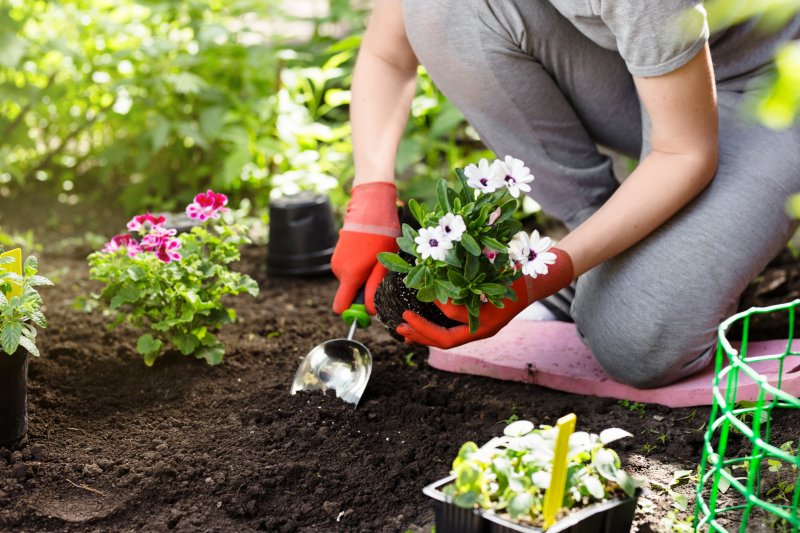
Whether it’s pulling up weeds, planting flowers, or cutting back overgrown bushes, gardening is a laborsome yet rewarding hobby. With many individuals eager to put on their gloves and hats and spend hours pouring new mulch and fertilizer to encourage successful growth, it should come as no surprise that this physical activity can positively impact one’s sleep apnea. If you’re looking to do more to ease your symptoms and achieve better rest, keep reading.
The Positive Effects of Gardening
When it comes to digging in the dirt and planting your favorite flowers, gardening provides many unique benefits that positively impact your overall health, some of which include:
- More Movement – Any form of exercise, even low-impact activities like gardening, causes you to use various muscles throughout your arms and legs, helping improve your overall wellness. This can lead to weight loss and better sleep.
- Exposure to Sunlight – Instead of being cooped up inside using overhead lights, gardening forces you to be outside where natural sunlight is readily available. This exposure helps to regulate your natural clock and circadian rhythm – both of which are essential for better sleep patterns.
- Less Stress – Gardening is known for its stress-relieving abilities. By focusing your attention on something else (i.e., the flowers you’re planting, the weeds that need pulling, etc.), you can reduce the amount of cortisol being produced and instead embrace a more calming and relaxing type of activity.
- Mindfulness – Healthy sleep requires peace of mind. If you’re worried or spend too much time focusing on negative thoughts, it can hinder your ability to get the rest you need. However, by engaging in activities like gardening, you can take in the beauty of nature and practice more mindfulness.
Ways to Ensure Better Sleep
Just like you want to make sure you’re planting the right things in your garden so that it will thrive, you also want to choose the right habits to create a place where optimal sleep can be achieved. You can do this by:
- Turn off screens at least 1-2 hours before bedtime
- Avoid caffeine before going to bed
- Practice breathing techniques and other stress-relieving activities (i.e., reading a book, meditation, etc.)
- Hang blackout curtains to prevent exterior lights from streaming into your room while you sleep
- Keep your room cool so that you don’t become overheated throughout the night and wake up
- Talk to your sleep dentist about treatment for sleep apnea, as you might need an oral appliance, CPAP, or more invasive procedure to help you avoid frequent interruptions and obstructions while sleeping
Gardening has its benefits, one of which is better rest, so if you want to do something about your chronic fatigue and inability to sleep soundly, prepare to try out this new hobby once the temperature warms up.
About the Practice
At Star Sleep & Wellness in Denton, our sleep dentists and specialists treat individuals who struggle to get the rest they need. Offering an array of treatment options for those who need help to avoid obstructions while sleeping, we also provide valuable insight and suggestions on how to encourage better lifestyle habits at home. Whether it’s new hobbies or giving up harmful tendencies, we can discuss how the changes you make can positively impact your daily life. Contact us to learn how we can help.
